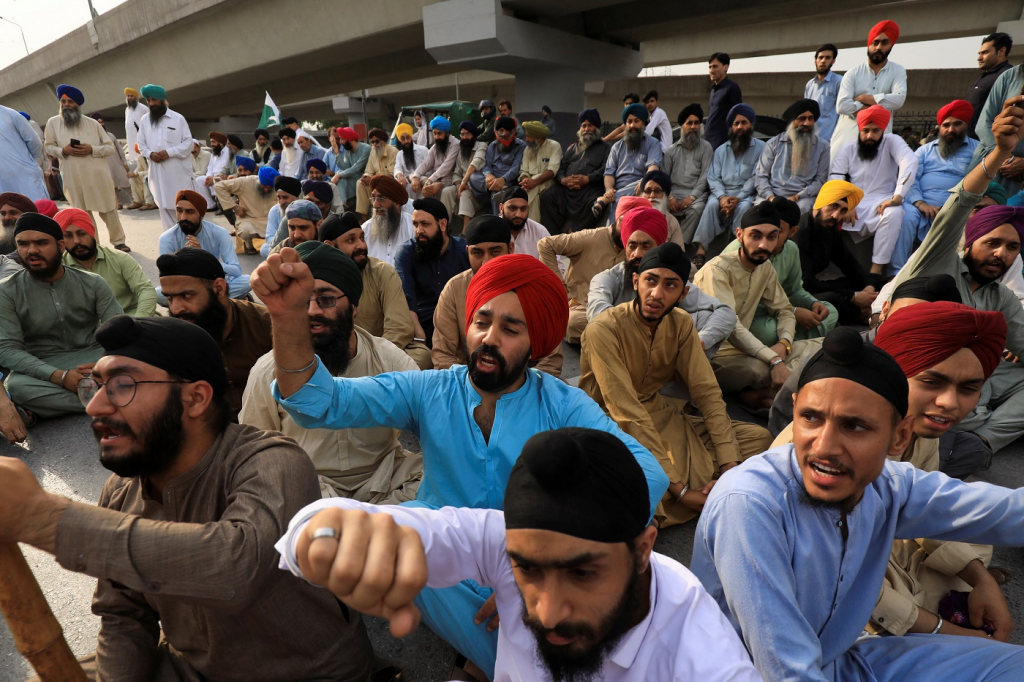
In a tragic incident that has sent shockwaves across the region, the Islamic State (IS) group has claimed responsibility for the killing of a Sikh man in Pakistan’s northwest. This despicable act of violence has once again highlighted the urgent need for enhanced security measures and communal harmony in the region.
Understanding the Context
The targeted killing occurred in the northwestern region of Pakistan, an area that has been plagued by sectarian violence and extremist activities in recent years. The victim, a member of the Sikh community, was attacked in Peshawar, the capital city of Khyber Pakhtunkhwa province. The incident has not only instilled fear and insecurity among the Sikh community but has also raised concerns about the overall state of law and order in the region.
Condemnation and Outrage
The brutal killing of an innocent individual has garnered widespread condemnation and outrage from various quarters. Political leaders, human rights organizations, and religious communities have united in their denunciation of this heinous act. They have called for swift action from the authorities to bring the perpetrators to justice and to ensure the safety and protection of all citizens, regardless of their religious beliefs.
Implications for Interfaith Relations
Pakistan is home to various religious communities, including Muslims, Christians, Hindus, and Sikhs, among others. Incidents like this pose a significant threat to interfaith relations and undermine the fabric of a diverse and inclusive society. It is essential for religious leaders and communities to come together and promote understanding, tolerance, and mutual respect to counter the divisive narratives propagated by extremist groups.
Strengthening Security Measures
To prevent such tragic incidents from occurring in the future, it is imperative to strengthen security measures and intelligence capabilities. Law enforcement agencies should collaborate with intelligence services to identify and apprehend individuals or groups involved in promoting violence and extremism. Additionally, the government must provide adequate resources to ensure the training and equipping of security forces in tackling emerging threats effectively.
Fostering Communal Harmony
Promoting communal harmony is crucial to building a peaceful and inclusive society. Efforts should be made to foster dialogue, understanding, and cooperation among different religious communities. Interfaith dialogue initiatives, cultural exchanges, and community engagement programs can play a vital role in bridging gaps and fostering mutual respect. Such endeavors can help in countering extremist ideologies and building a society where diversity is celebrated.
International Support and Collaboration
Addressing the complex challenges of extremism and terrorism requires international cooperation and support. Pakistan, along with its international partners, must work collectively to share intelligence, exchange best practices, and provide assistance in capacity-building efforts. Combating terrorism and ensuring the safety of all citizens should remain a global priority, and concerted efforts are needed to eliminate the menace of extremist groups like the Islamic State.

Conclusion
The tragic killing of a Sikh man by the Islamic State group in Pakistan’s northwest is a somber reminder of the ongoing challenges faced by societies affected by terrorism and extremism. It is imperative for all stakeholders, including the government, law enforcement agencies, religious leaders, and communities, to unite in their efforts to combat this menace. By prioritizing security, promoting interfaith dialogue, and fostering communal harmony, we can strive towards a society where every individual can live without fear and discrimination.


